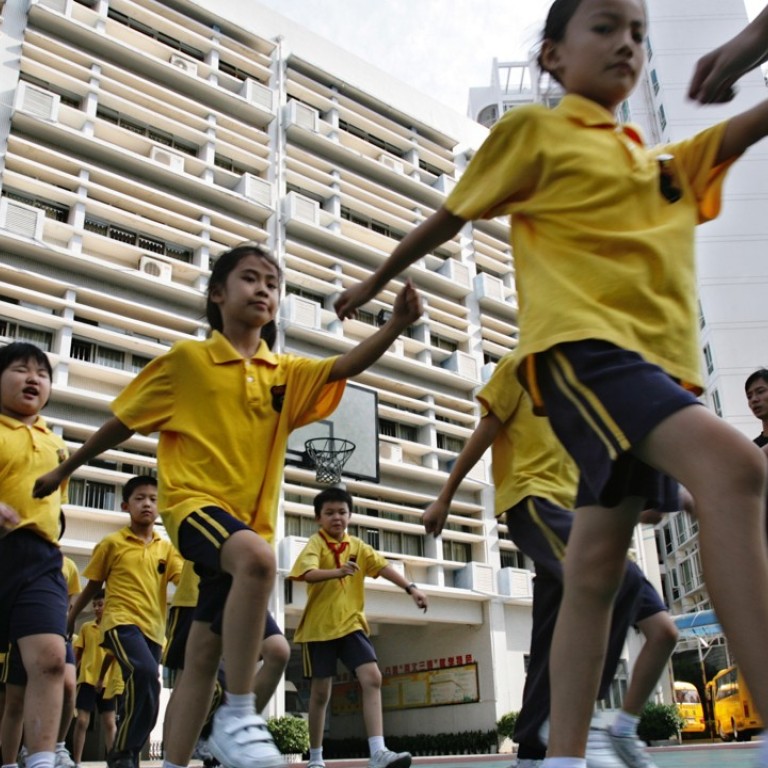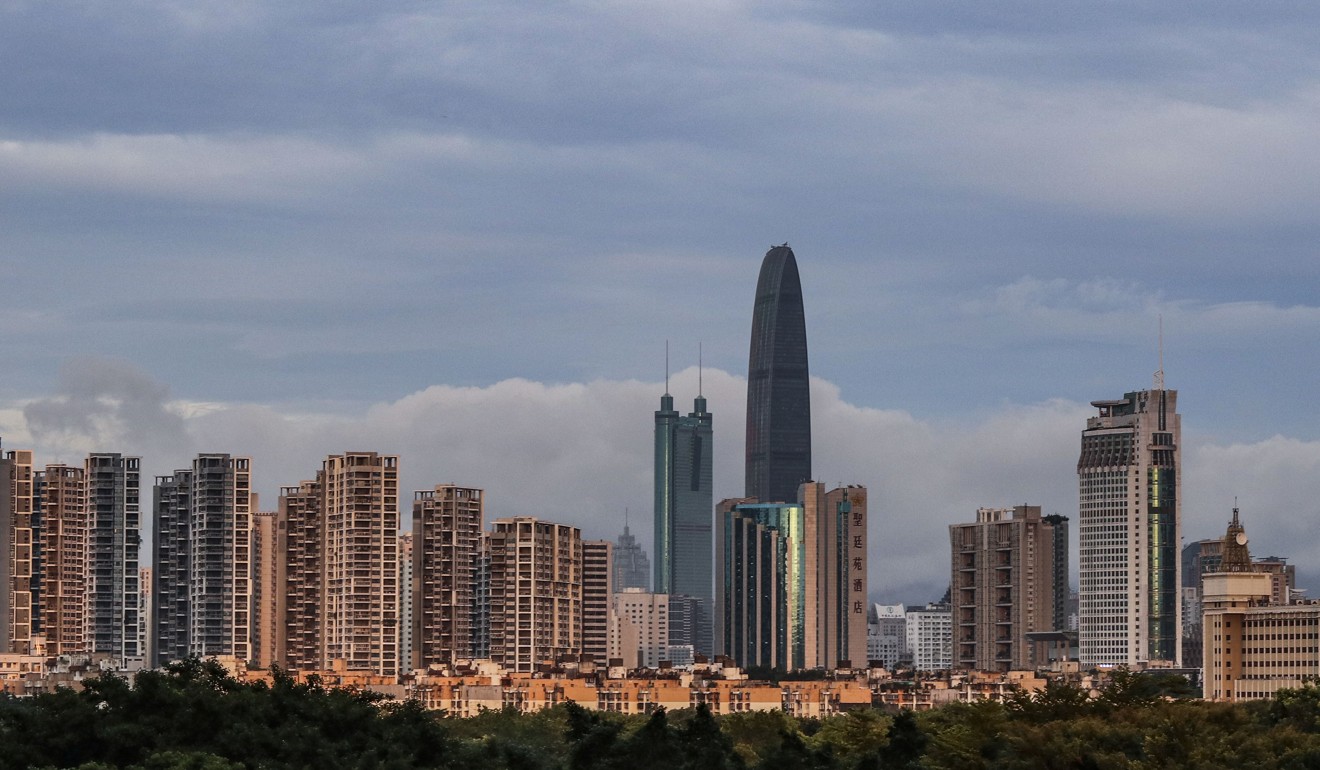
Call to set up separate school curriculum for Hong Kong students in Guangdong province for ‘Greater Bay Area’ families, with government talks under way
City’s education chief says scheme, with Cantonese as main medium of instruction, will help such youngsters integrate better into local system if their families return
Schools in China’s Guangdong province could offer a curriculum tailored for Hong Kong children whose parents are based there, as negotiations between both governments are proceeding smoothly, the city’s education minister has said.
On Friday, Hong Kong Secretary for Education Kevin Yeung Yun-hung said he was aware Hongkongers working in the “Greater Bay Area” would be concerned about their children’s education. The bay area scheme aims to link Hong Kong, Macau and nine other mainland cities in Guangdong into an integrated economic hub.
Yeung was calling for interested stakeholders to set up mainland schools offering Hong Kong curriculum, with the main medium of instruction to be Cantonese.

“We know that Hongkongers will want to have a Hong Kong curriculum for their children to follow,” Yeung said on a radio programme, adding this would facilitate the students’ integration back into local schools if their families returned.
He said at present Hongkongers in Shenzhen study in international schools or places that generally use a mainland curriculum but with English lessons based on those from Hong Kong.
“From our early discussions with the Education Department of Guangdong province, the policy is not an issue, but we need to head to different cities for further talks on matters such as land and construction,” Yeung said. He added the department was “proactive” about the plan.
Students to face compulsory military training at top mainland university
He said under this proposed arrangement, most subjects could be taught in Cantonese, with Mandarin for a select few.
Wong Kwan-yu, president of the Hong Kong Federation of Education Workers, a pro-Beijing teachers’ union, said the city’s Education Bureau had consulted it on the plan a few months ago. The group operates two local schools but said it had no plans to set up one in the Bay area.
“It is already difficult to manage a school in Hong Kong, all the more so on the mainland, but we are open to studying the feasibility,” he said.
It is already difficult to manage a school in Hong Kong, all the more so on the mainland, but we are open to studying the feasibility
Wong said concerns included student enrolment numbers, with uncertainty in the actual number of Hongkongers moving to an area, and the costs of setting up a school. Such a facility would likely be privately owned, according to him.
Yeung said it was a chicken-or-egg conundrum, so the government took the lead to promote the plan. He added: “Do we build [schools] only after many Hongkongers move over, or do we build first to attract more people to move?”
But Liu Cheung-hin, principal of the Hong Kong section of Luohu School for Hong Kong Children in Shenzhen, said education authorities should not focus too much on a purely Hong Kong curriculum.
Liu said his school, one of two private schools in Shenzhen where graduates could be admitted back into the Hong Kong education system, followed a mainland curriculum, except when it came to English and general studies. The latter is the only subject at the school taught in Cantonese and traditional Chinese characters. The mainland uses simplified Chinese characters in writing.
More China universities exempting Hongkongers from entrance exams
“The mainland education system is known for producing students good in Chinese and mathematics; in any case students will communicate in Cantonese outside the classroom,” Liu said.
The principal also said he anticipated issues surrounding the management of the schools – for example, if pro-independence protests surfaced on campus, whether mainland or Hong Kong authorities would handle the matter.
He noted that while his school was private, it was under some degree of government management.
Hong Kong education sector lawmaker Ip Kin-yuen said matters such as school management and what laws they would follow had to be sorted out.
Fung Wai-wah, president of the Hong Kong Professional Teachers’ Union, also said discussion was needed over whether the schools would be using Hong Kong resources.

